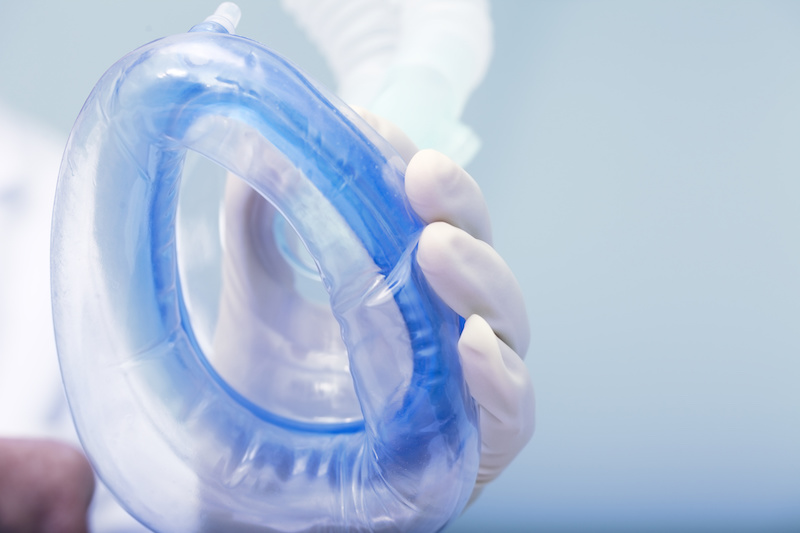What parents should know about anesthesia

The prospect of surgery can be distressing to parents and kids alike, but the idea of a child undergoing anesthesia can be often be even more concerning to families. Still, many babies and young children need anesthesia to be able to tolerate tests, surgeries, and other minor invasive procedures. We asked anesthesiologist Dr. Joseph Cravero, Chief of the Pain Treatment Center at Boston Children’s Hospital, to answer some of parents’ most common questions about anesthesia and kids.
Q. What is general anesthesia?
A. In the most basic terms, general anesthesia involves a process of significantly decreasing the brain’s activity long enough to accomplish a test or surgery. People under general anesthesia may appear to be in a very deep sleep from which they can’t be roused. Many different medications can produce a state of anesthesia where the brain is no longer responsive to stimuli such as pain.
While physicians and scientists have identified some of the receptors in the brain that are affected by anesthesia, it isn’t fully clear exactly what produces this state. What we do know is that during anesthesia patients need to have their breathing and other bodily functions monitored closely, and in some cases, fully supported.
Q. I’ve heard of regional anesthesia. What’s that?
A. Regional anesthesia refers to the practice of “numbing” a portion of the body so that it cannot feel discomfort. In adults, physicians can perform surgery on people who just have a portion of their body “numbed”. This is commonly done for knee or hip surgery.
While anesthesia for babies and young children may include some element of regional anesthesia to minimize pain during and after an operation, it’s too challenging for kids to hold still for an operation. For this reason, we almost always use regional anesthetics in addition to general anesthesia to spare children the stress of a surgical experience.
Q. What does a pediatric anesthesiologist do?
A. Pediatric anesthesiologists are specifically trained to administer anesthesia for newborns, infants, and young children and understand the unique issues associated with this population. They are expert in using the monitors required to be sure that a child is safe during anesthesia and to provide any interventions needed to maintain breathing, blood pressure, and other critical functions while the child is under anesthesia.
Q. Is general anesthesia risky for my child?
A. The immediate risks of anesthesia are dependent on the individual child and the procedure being performed. In general, for a child who is not terribly ill, the immediate risk of injury from anesthesia is extremely low. It’s difficult to estimate the likelihood of these risks because they vary so greatly with the specific case.
However, it’s safe to conclude that the risk of serious injury from anesthesia is in the neighborhood of one in tens of thousands. To put this into context, there are many activities that a child might partake in that would have equal or greater risk, such as swimming, riding a bicycle, skateboarding, or ice skating.
Q. Can general anesthesia have any negative effects in the long run?
A. The long-term risks from exposure to anesthesia are less clear. Currently, there is a lot of ongoing research in this area. Experiments in animals do suggest that long-term exposure to high levels of most of the anesthetic medications is associated with some concerning findings in the brain. These findings correlate with poorer learning and adverse behavioral changes.
On the other hand, research in humans is less consistent. Studies of large populations of children who have received anesthesia have shown varying results. Many show no effect of exposure to anesthesia for surgery. A smaller number of studies indicate a correlation with learning issues after anesthesia, but they have generally been associated with multiple anesthesia exposures quite early in life. The best study in this area concluded there was no effect from one exposure to anesthesia as a small infant.
Due to the uncertainty about the effects of exposure to anesthesia in childhood, the U.S. Food and Drug Administration advises that elective (not mandatory for health) surgery and anesthesia be delayed until after 3 years of age when possible.
The bottom line
When considering these issues, it’s important to remember that almost all the surgery performed on children at very young ages is not “optional,” but is being done to promote the health of the child and should not be delayed. There’s no question that in these cases there is more risk to forgoing surgery and anesthesia than there is from completing the procedure. If you have questions or concerns, your anesthesiologist can discuss the effects of anesthesia with you and will work to minimize the overall exposure for your child.
Learn about the Department of Anesthesiology, Critical Care and Pain Medicine.
Related Posts :
-

How a meniscal transplant made me a Boston sports fan
I was in kindergarten when my knee started popping and cracking. My parents and I didn’t know it at ...
-

Hard and beautiful at the same time: Five lessons of raising a medically complex child
When they learned they were expecting a baby, Michelle and Stephen Strickland were delighted. The South Carolina couple looked forward ...
-

‘Challenge accepted’: Sophia takes on a brain tumor
In 2023, Sophia Mordini landed the role of a lifetime. A competitive dancer, the 12-year-old would play Clara in her company’...
-

A safe, pain-specific anesthetic shows preclinical promise
All current local anesthetics block sensory signals — pain — but they also interrupt motor signals, which can be problematic. For example, ...





